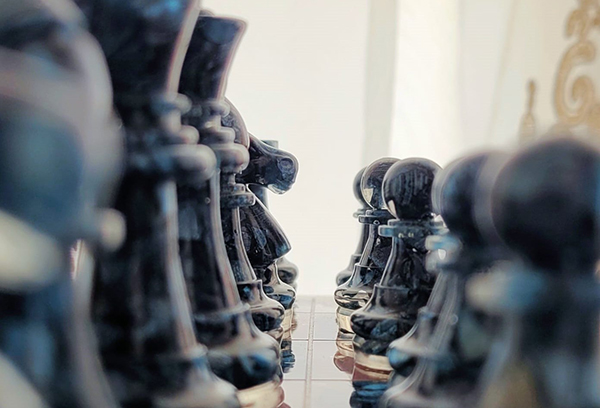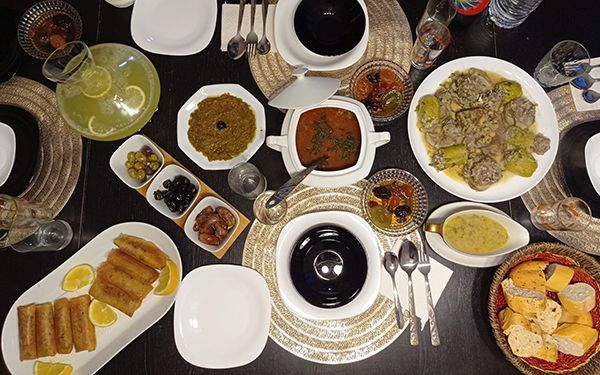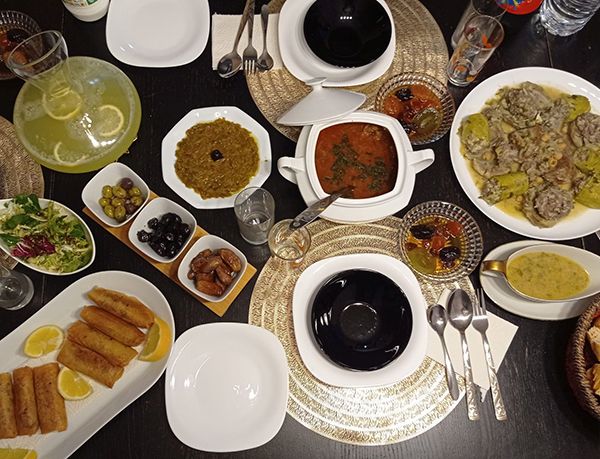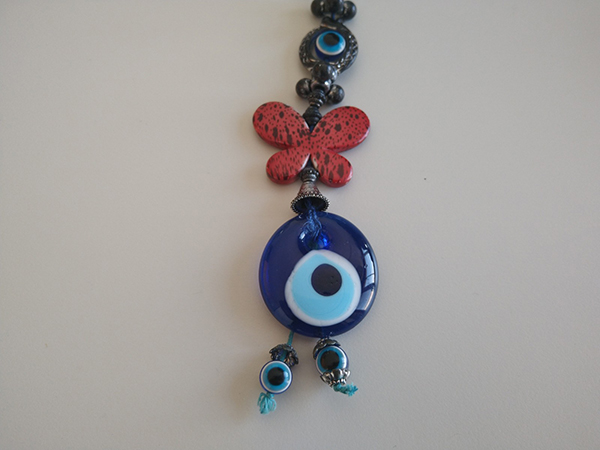Rund um den Jahreswechsel geschehen manchmal Wunder. Nicht nur in Filmen, sondern auch im wirklichen Leben. Yana und ihre Familie hat eines erlebt. Sie hat es für tünews INTERNATIONAL aufgeschrieben: „Ich war an diesem Tag erschöpft. Ehrlich gesagt, so wie an jedem anderen Tag seit meinem Umzug nach Deutschland. Oder nach der ,Flucht‘. Ich mag dieses Wort einfach nicht. Morgens der Unterricht an der Uni, nachmittags Deutschkurse, danach, abends, Englischkurse und sehr spät am Abend mein Bürojob. An diesem Tag hat es geschneit. 10 Minuten vor Ende meiner Englischstunde schickte mir meine Mutter eine Textnachricht: ,Ich habe meine Tasche mit… Read More
Category: TÜNEWS DIVERSE
Indians, Chinese, Persians or Arabs: Who invented chess?
By Oula Mahfouz The interest in the origins of the game began with a conversation over a game of chess in the family. “Checkmate, Omar. Do you know that the origin of chess is Arabic, because ‘checkmate’ is Arabic and means ‘the king has died’.” “No, mum, chess comes from India,” the nine-year-old replied. His twelve-year-old brother Mohammad intervened in the discussion and said, “No, you’re both wrong, the game comes from Persia.” The two boys seemed very sure of their opinion. When I looked for the origin of the game, I discovered that there are very different explanations and… Read More
A winter fairy tale: Bus driver Olga, two Ukrainian women and a bag
Around the turn of the year, miracles sometimes happen. Not only in movies, but also in real life. Yana and her family experienced one. She wrote it down for tuenewsINTERNATIONAL: “I was exhausted that day. Honestly, just like any other day since I moved to Germany. Or after the ‘escape’. I just don’t like that word. Classes at the university in the morning, German classes in the afternoon, then, English classes in the evening, and my office job very late in the evening. That day it was snowing. 10 minutes before my English class ended, my mom sent me a… Read More
Inder, Chinesen, Perser oder Araber: Wer hat Schach erfunden?
Von Oula Mahfouz Unser Interesse an der Herkunft des Spiels begann mit einem Gespräch bei einer Partie Schach in der Familie. „Schachmatt, Omar. Weißt du, dass der Ursprung des Schachspiels arabisch ist, denn ‚schachmatt‘ ist Arabisch und bedeutet: ‚der König ist gestorben‘.“ „Nein, Mama, Schach kommt aus Indien“, antwortete der Neunjährige. Sein zwölfjähriger Bruder Mohammad mischte sich in die Diskussion ein und sagte: „Nein, ihr irrt euch beide, das Spiel kommt aus Persien.“ Die beiden Jungen schienen sich ihrer Meinung sehr sicher. Als ich nach dem Ursprung des Spiels suchte, entdeckte ich, dass es ganz unterschiedliche Erklärungen und viele Legenden… Read More
توج العراق ببطولة أسيا لكرة القدم في خضم الحرب الأهلية
سمير ابراهيم بمناسبة بطولة كأس العالم لكرة القدم والتي انتهت قبل أيام، يتذكر المحرر العراقي في صحيفة تو نيوز انترناشونال سمير إبراهيم أعظم نجاح للمنتخب العراقي لكرة القدم حتى الآن، حيث توج قبل سنوات بطلاً لأسيا لكرة القدم. تحظى كرة القدم بشعبية كبيرة في المجتمع العراقي. كل العراقيين متحدون في كرة القدم. لأن المنتخب الوطني يتكون من لاعبين يمثلون جميع أطياف الشعب العراقي. وهو بالـتأكيد نموذج مصغر للمجتمع العراقي، والذي يتكون من 40 مليون شخص أقيمت كأس آسيا، التي تقام كل أربع سنوات، في يوليو 2007 لأول مرة في تاريخ البطولة في أربع دول: إندونيسيا وماليزيا وفيتنام وتايلاند. لم يكن… Read More
Aberglaube: Gastfreundschaft
Der Aberglaube ist laut einer Definition des Online-Wörterbuches Duden ein „als irrig angesehener Glaube an die Wirksamkeit übernatürlicher Kräfte in bestimmten Menschen und Dingen“. Dazu zählen Sprüche, Symbole oder Rituale, die im Alltag verwendet werden. Die Inhalte sind von Kultur zu Kultur, oft schon von Region zu Region verschieden. In der Redaktion von tünews INTERNATIONAL haben wir folgende Beispiele aus Afghanistan, Syrien und Deutschland zusammengetragen: Viele Sprüche und Orakel drehen sich im arabisch- und persisch-sprachigen Raum um die Gastfreundschaft. Wenn etwa nur ein Auge eines Syrers blinzelt, dann beeilt er sich, sein Haus in Ordnung zu bringen, weil ihn ein… Read More
Aberglaube: Glück und Unglück
Der Aberglaube ist laut einer Definition des Online-Wörterbuches Duden ein „als irrig angesehener Glaube an die Wirksamkeit übernatürlicher Kräfte in bestimmten Menschen und Dingen“. Dazu zählen Sprüche, Symbole oder Rituale, die im Alltag verwendet werden. Die Inhalte sind von Kultur zu Kultur, oft schon von Region zu Region verschieden. In der Redaktion von tünews INTERNATIONAL haben wir folgende Beispiele aus Afghanistan, Syrien und Deutschland zusammengetragen: Ein Brauch aus Syrien gilt als Omen für die Ehe: Vor der Hochzeit klebt die Braut ein Stück Teig an den Eingang des Hauses ihres Mannes. Wenn der Teig kleben bleibt, ist es ein gutes… Read More
Superstition: Hospitality
According to the definition of the online Duden dictionary, superstition is “a belief in the effectiveness of supernatural forces in certain people and things that are viewed as erroneous”. These include sayings, symbols, and rituals that are used in everyday life. The content differs depending on the culture, and even the region. By the tünews INTERNATIONAL’s editors, we have compiled the following examples from Afghanistan, Syria, and Germany: Many sayings and divinations revolve around hospitality in Arabian and Persian-speaking countries. For example, if a Syrian’s eye blinks, then he hurries to tidy up the home because an important or dear… Read More
Superstition: good luck and bad luck
According to the definition of the online Duden Dictionary, superstition is “a belief in the effectiveness of supernatural forces in certain people and things that are viewed as erroneous”. These beliefs include sayings, symbols, and rituals that are used in everyday life. The content differs depending on the culture, and even the region. By the tünews INTERNATIONAL’s editors, we have compiled the following examples from Afghanistan, Syria, and Germany: This custom from Syria is considered a good omen for marriage: before the wedding, the bride sticks a piece of dough at the entrance of her husband’s house. Dough that sticks… Read More
Superstition: money and symbols
According to the definition of the online Duden Dictionary, superstition is “a belief in the effectiveness of supernatural forces in certain people and things that are viewed as erroneous”. These include sayings, symbols, and rituals that are used in everyday life. The content differs depending on the culture, often even the region. By the tünews INTERNATIONAL’s editors, we have compiled the following examples from Afghanistan, Syria, and Germany: Afghanistan and Syria believe that a tickle in the left hand will bring money to the person. With the tickle of the right hand, on the other hand, one expects soon to… Read More










